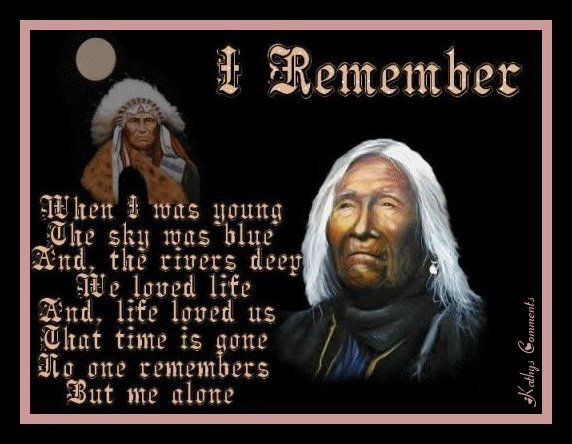Hi Phil,
Thanks for the information on scalping.
Check this one out.
God's Medicine
by Chief Noble Red Man,
Lakota Wisdomkeeper Mathew King



People ask me if I'm a medicine man. Well,I'm not. Some of our Indian people were blessed with that power in thepast. They're all gone now.
Today our people know only a little medicine. It's a specialknowledge. You can't read it in books. You can't inherit it. It can'tbe bought or sold. This knowledge can come to you only through theGreat Spirit.
We had great medicine men. I'll tellyou about one I knew when I was a boy. This was in 1908 or 1910, and myfamily was traveling from Pine Ridge to a summer get-together inSantee, Nebraska. There were no cars in those days. We traveled incovered wagons, and it took twelve days to get to Santee. On the way itwas so hot my little sister — she was about five — got sick. Sunstroke orsomething. By the time we reached Santee she was unconscious, almostdead. We set up a tipi and put her in there, out of the sun.
My mother saw our cousin Vine Deloria, and he took one look at my sister and said, "Let's go get Dr. Queen — he's here!"
So they ran and brought a man back to the tipi. He wore a suit and anecktie, not Indian dress. But he had black hair flowing down to hiswaist. He was a medicine man — one of the greatest.
He put his hand on my sister's body. "There's a cold spot insideher," he said. "It's cold and it's spreading. If we don't stop it,she'll die. We've got to heat her up from the inside. There's only onething that will work."
He went out, and a little while later he cameback with some roots, each about the size of my little finger. Hescraped off the skin and then sliced them up.
"I need a wooden bowl," he said. "We got to boil these."
In those days, when you wanted to offer a spiritual thing you used a wooden bowl, you didn't use the White Man's bowl.
"How you going to boil them in a wooden bowl?" my mother asked him.
Dr. Queen said, "You'll see."
So she gave him a wooden bowl with water in it. Dr. Queen put theroots in the bowl. Then he put it on a table and he held his hands overthe bowl like you hold your hands over a hot stove. A whole crowd ofpeople gathered around, watching him, wondering how he was going tomake that water boil.
"Watch!" he said.
They watched. Pretty soon, someone said, "Look! Look!"
The roots started moving in the water, just a little at first, thenmore and more, until it seemed as if they were alive, wriggling aroundin the water like snakes.
And then they started to smoke!
There was no fire, mind you, just the wooden bowl sitting on thetable. But the roots began to smoke. Pretty soon the water startedboiling and steaming like water boils on a stove. But there was nostove.
"That's God's power," Dr. Queen told us.
Then he gave the bowl to my mother. "Strain it," he said, "then give it to her. Put it to her mouth with a wooden spoon."
So my mother gave the hot broth to my sister, who was still asleep.She put it to her lips with a wooden spoon and then let her sleep somemore.
That night they held prayers for my sister at seven o'clock. Theysang spirit-songs. I went back and forth from the prayer meeting to thetipi to see how my sister was doing. I thought she was going to die. Sodid everybody.
An hour later we were all standing around her. We were all crying.And then she opened her eyes. She sat up like she was waking from anap. She yawned. She rubbed her eyes.
She looked at all of us.
"Why is everyone crying?" she asked.
Dr. Queen said, "Give her some more broth to drink." So my mother gave her some more broth and she drank it.
"Now let her rest," Dr. Queen said.
So after that we went back to the meeting and sang more spirit-songs. That happened about nine o'clock.
And all of a sudden, here she comes! My little sister, she cameright up and stood beside me where we were singing. She was smiling. Iasked her it she was all right.
"There's nothing wrong with me," she said. And there wasn't. She didn't even remember being sick.
So that's the power of God's medicine.
FINDING YOUR POWER
Every person has to find their own power, because each of uspossesses a certain power. Search yourself for that power, know how toreach it inside yourself, and then use that power in harmony withGod — for good and not for evil.
Blessings,
Myrna
